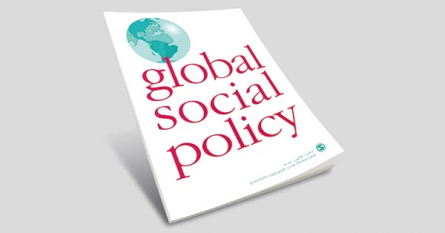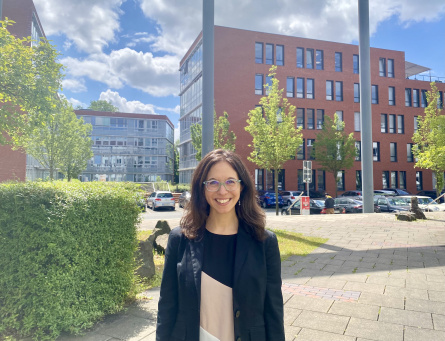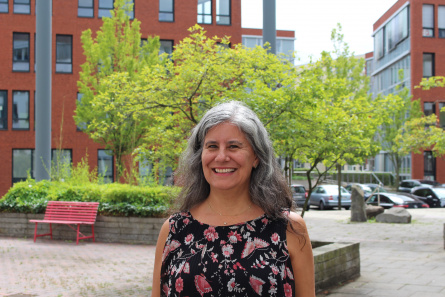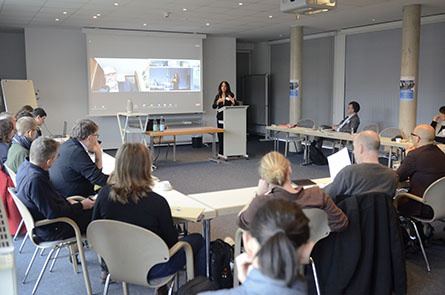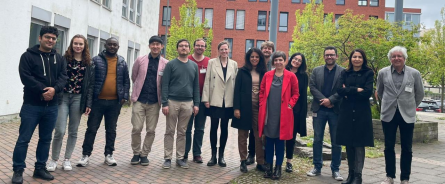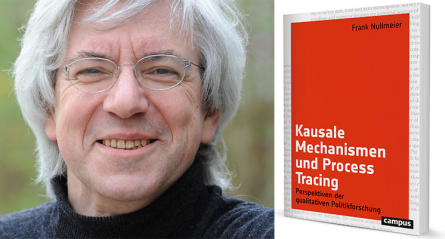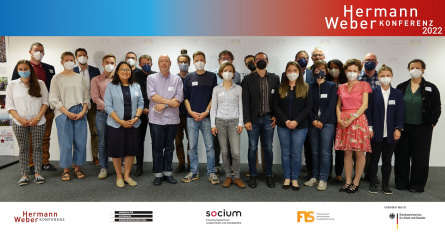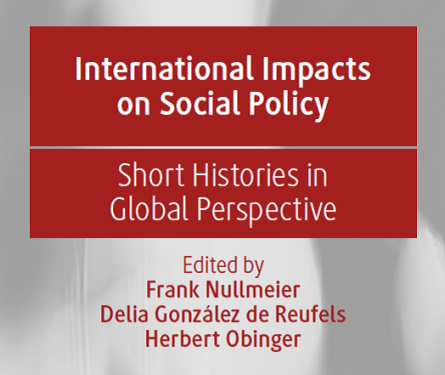Conference ReportIn the aftermath of the Second World War, Winston Churchill advised in classic fashion: ‘Never let a good crisis go to waste’, and thus pointed to the potential any crisis entails. This was not lost on the attendees and presenters of the international conference "Economic Crises and Social Policy in the Twentieth Century" on December 1st and 2nd, 2022 which was organised by professors. Delia González de Reufels and Cornelius Torp as part of the CRC project B11.
At the centre of the conference were the two most important worldwide recession phases of the twentieth century: the Great Depression of the late 1920s and 1930s and the crisis-ridden period spanning the oil price shock of the early 1970s to the Asian financial crisis and the economic turmoil in Latin America at the end of the millennium. These shocks generated important impulses in social policy and the conference sought to shed light on these developments. This raised several important questions a to whether economic shocks were ever truly global in nature. And to what extent does the memory of previous crises shape responses to new economic downturns? Finally, what is their relationship to social policy? These overarching questions shaped the presentations and discussions that followed.
The first session focused on the interplay of crises, inequality, and social reform. Phillip Rehm started by explaining the nexus of how crises effect societal risk perception and welfare-state creation. His model linked ‘risk flips’ during a crisis to the increased preference for social programmes. Paul Dutton then demonstrated the ways historians can shed new light on unequal population health outcomes by seeing beyond the myopic fixation with medical care as the sole determinant of health.
Martin Daunton, Jason Scott Smith, and Daniel Béland presented in the second session which engaged with the Great Depression of the 1930s and its aftermath in Britain, the United States and Canada respectively. Topics as varied as tax-system rationalisation, spending on public-works programmes and the different impacts of centralisation vis-á-vis federalism on the implementation of social policies were covered to show the responses of anglophone countries to deep economic crises and the instruments they implemented.
In the third session, Klaus Petersen and Ángela Vergara underlined in their presentations the trajectories of Denmark and Latin America from the Great Depression of the 1930s, to the oil shocks of the 1970s and, in Latin America, the resulting debt crisis in the 1980s. By exploring both internal and external influences, they illuminated the discourses that allowed different forms of social policy to take root.
The presenters of fourth session on social policy reform explained employment policy reform from a comparative perspective in Asia, focussing on South Korea and Japan, and looked at labour and welfare in response to crisis in Australia. Juyoung An called for researchers to pay close attention to union strategy in order to understand divergent social policy outcomes while Gaby Ramia demonstrated the peculiarity of Australia’s ‘wage-earners’ welfare state’.
Drawing the first day to a close, Carmelo Mesa-Lago presented in his key note lecture his findings on pension privatisation in eleven Latin American countries between 1980 and 2020. He showed that, except for those countries who considered increased capitalisation of pension funds, none of the benefits that privatisation had promised, from adequacy and coverage, to concentration, materialised. This implies a serve crisis of pensions in these countries.
On the second day of the conference, Paolo Mattera, Raquel Varela and Paul Stubbs illustrated the impacts economic crises had on the development of the welfare state during the 1970s in Southern Europe and South-Eastern Europe. Mattera showed that Italian political actors opted to align domestic fiscal policy to decisions taken by other European countries, while Stubbs highlighted that the Yugoslavian government favoured the narrative of non-alignment. Finally, Varela demonstrated that important national shifts such as the Carnation Revolution in Portugal were decisive for the field of social policy.
In the following session, Cecilia Rossel and Andrés Solimano presented their work on two countries in the Southern Cone: Uruguay and Chile. Rossel showed how the banking crisis in Uruguay in the early 2000s led to a substantial change in social policy to address the shift of social assistance preferences. Here data indicated that this financial crisis led to a reconsideration of the principles of the 1989 ‘Washington Consensus’. Andrés Solimano’s work similarly drew attention to the complex relationship between increasing socio-economic inequality in Latin America during the period of stabilisation on the one hand, privatisation and liberalisation and the response by means of social policies on the other.
Social policy development in the face of crisis in Asia, the title of the seventh panel, was illustrated by the example of China where according to Aiqun Hu, social security reforms were made in a response to the employment crisis in China during the 1970s. This research tells the story of how the impact of an economic crisis was addressed in the field of social policy in the context of a system of state planned economy.
After an inspiring conference a lively debate completed the second day of the CRC conference. This discussion highlighted the need to evaluate ‘crises’ on both a theoretical and empirical level. The detailed historic reconstruction and analysis of the repercussions of economic crises on social policy needs to include a trans- and cross-national as well as a historical perspective. is an important endeavour that the participants emphasised as being far from completed. Future work could therefore enrich the field by focusing on more regions as for example African countries. Different aspects like gender and the categories of work distinguishing for example between formal and informal labour are aspects that could be worth looking at in more detail in further debates. The conference nevertheless demonstrated that the link between economic crises and social policy is a rich and fundamentally important topic of research a with the potential to enlighten the overarching CRC interest in exploring the global dynamics of social policy.
Contact:Prof. Dr. Delia González de ReufelsCRC 1342: Global Dynamics of Social Policy, Institut für Geschichtswissenschaft / FB 08
Universitäts-Boulevard 13
28359 Bremen
Phone: +49 421 218-67200
E-Mail:
dgr@uni-bremen.deProf. Dr. Cornelius Torp
